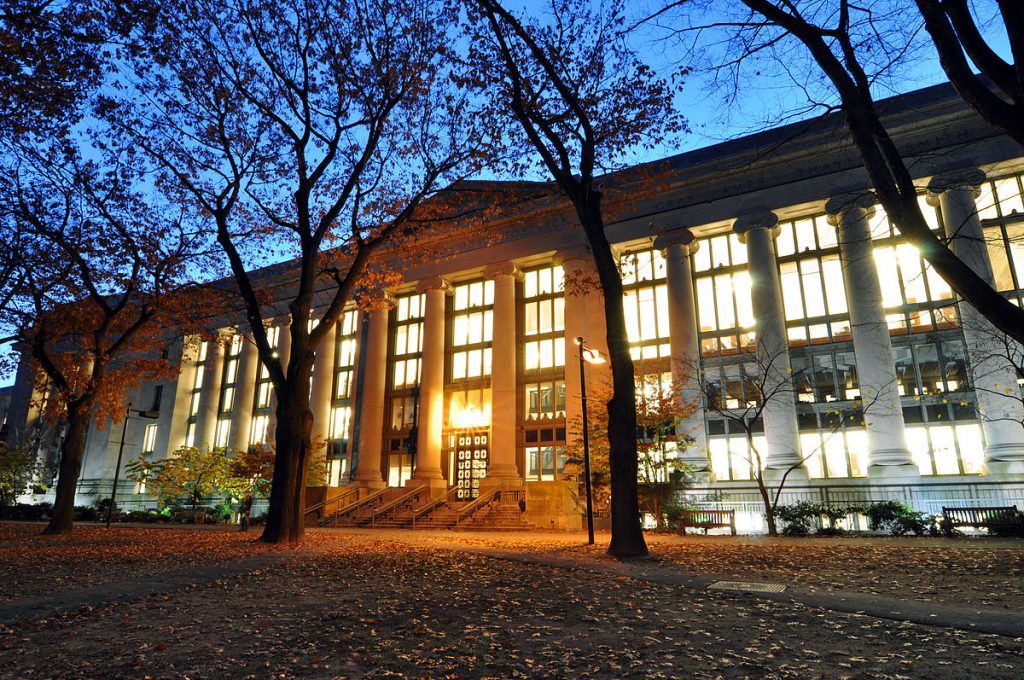
Harvard Law students are not happy with the recent announcement that the school is moving the fall semester online, as hundreds of students criticize the HLS administration for taking a step backward and intentionally endangering their future legal careers.
Harvard Law dean John F. Manning informed the students in a June 3 email, that the school will switch to remote learning for the 2020 fall semester, in response to the current public health concerns and uncertainty about the availability of COVID-19 testing on campus.
The announcement was widely scrutinized by students who say online courses will affect their legal education and additionally disadvantage students facing disruptive living situations.
In response, the students drafted a petition calling for change to the school’s proposed policies and demanded an alternative model.
Following the announcement, HLS held webinars and responded online to frequently asked questions on topics such as grading, tuition, and leave of absence considerations. According to Harvard Crimson, students complained that the information provided by the school was either insensitive or vague.
“I think finally people are getting fed up with how HLS has been less than transparent in this whole process,” law school student Paul A. Caintic told Harvard Crimson. “It’s just all been handled really terribly, and it hasn’t quelled students’ worries at all.”
The students said the webinars included “offensive” comments from administrators, such as suggesting debt-ridden students rent an office space if they need a quiet place to study.
HLS spokesperson Jeff Neal explained that the administrators at the webinar were responding to a question about studying in difficult home environments and suggested students could use grants to rent outside space.
“Ultimately, we indicated that every student must determine which options make the most sense for them, depending on their particular circumstances,” he wrote.
The petition was signed by more than 400 students and alumni and highlighted concerns with online education. Students are worried about difficulty connecting with professors and peers and reduced career advising opportunities.
A survey of nearly 400 students, shows that more than 80% of respondents would choose to postpone their legal education if the law school does not change its policies for the fall semester.
Manning defended the school’s decision to hold a fully online semester, in a statement responding to the petition. The law school Dean argued a hybrid plan would expose faculty and students to health risks and offer unequal educational experience.
“We understand that fully on-campus courses have advantages over online experience, but we think that hybrid courses may offer the worst of both worlds,” Manning wrote.
Students also voiced their concerns over the law school’s decision not to offer a tuition discount for the online fall semester or grading system accommodations.
“We all know that an online education is just not worth as much as an in-person one,” Caintic told Harvard Crimson. “The connections you make, the facilities you get to use, the free lunches — those are all things that are going to be lacking from our education now, and yet not a penny was deducted from tuition.”
While the law school’s website announced the cancellation of its expected tuition increase, the cutting of tuition is a university-level decision.
Law student Michael E. Hornzell told The Crimson the school refused to record fall semester classes.
The school has set aside up to $1 million to assist students who may have technical problems that could pose an obstacle to online learning.
Still, Hornzell said his access to a strong internet connection in the spring did not prevent frequent Zoom malfunctions that resulted in missing several minutes of class at a time.
Caintic had similar concerns, saying the inability to watch class recordings at students’ convenience would disadvantage those in different time zones or who hold family responsibilities.
“I think it unduly prejudices low-income students, students who find themselves in a difficult home situation, people who have young children who can’t afford a nanny, and our international population who again — I cannot stress enough — are being asked to become nocturnal to go to class,” Caintic told The Crimson.
















































